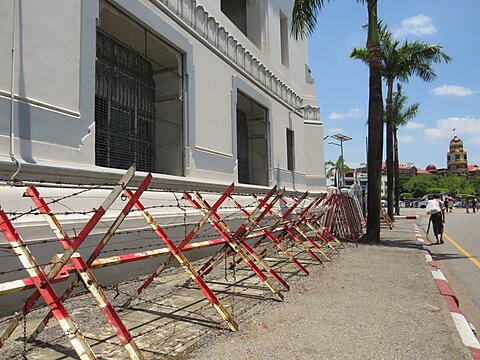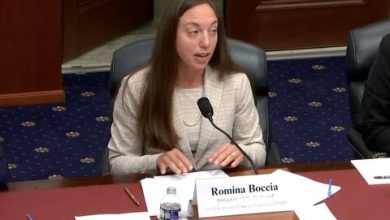ICE’d Out: Barricading an Iowa Immigration Office Is an Affront to Democracy

Architecture can say a lot. The places that do the citizens’ work with the taxpayers’ money should be meaningfully open forums, not defiantly hostile fortresses (like, say, Boston’s City Hall, a notorious concrete middle finger to the public). That is especially the case for courts. While they face security challenges, the Constitution requires all their proceedings to be conducted in the open. Sunlight should shine in the tribunals where the government and ordinary people meet to decide what is just.
The ability to gather, go inside, and observe is not just important for civil and criminal lawsuits: ensuring government transparency and accountability in its dealings with people is always important. Immigration proceedings are a case in point.
In one remarkable case earlier this summer, Catholic clergy, led by San Diego’s bishop-elect Michael Pham—himself a former refugee from Vietnam—turned up to watch immigration hearings on the fourth floor of the Edward J. Schwartz Federal Building. No proceedings followed because ICE agents immediately left. Said one would-be observer, “We’ve never seen the hallways cleared out so quickly.” Fr. Scott Santarosa remarked that this didn’t happen “because we were trying to interrupt the court. We just were present.”
The government could have responded by examining why it was afraid to carry out its business in front of concerned community members. Alas, at least in Cedar Rapids, Iowa, it’s decided to take another tack. Last week, the Department of Homeland Security informed local immigration activists that it would “erect a checkpoint and blockade” outside its local office and shut down a street, part of the outside lawn, and an adjoining alley. On Tuesday, several squad cars, a multi-agency force of officers, and caution tape tried to cordon off a hundred-foot perimeter.
But it turns out the public is less easy to intimidate than the feds. Hundreds of protesters gathered outside in spite of the restrictions, and no immigrants appearing for check-in appointments were detained. Local activist group Escucha Mi Voz lived up to its name (Spanish for “Listen to My Voice”), despite the government’s effort “to hide detention and deportations from the public view.”
People should not fear their governments, and governments should welcome public scrutiny. When the government is this afraid of San Diego padres and ordinary Iowans, it’s worth asking why.





